Mother of Soldier Who Died in Almaty Spoke with Orda
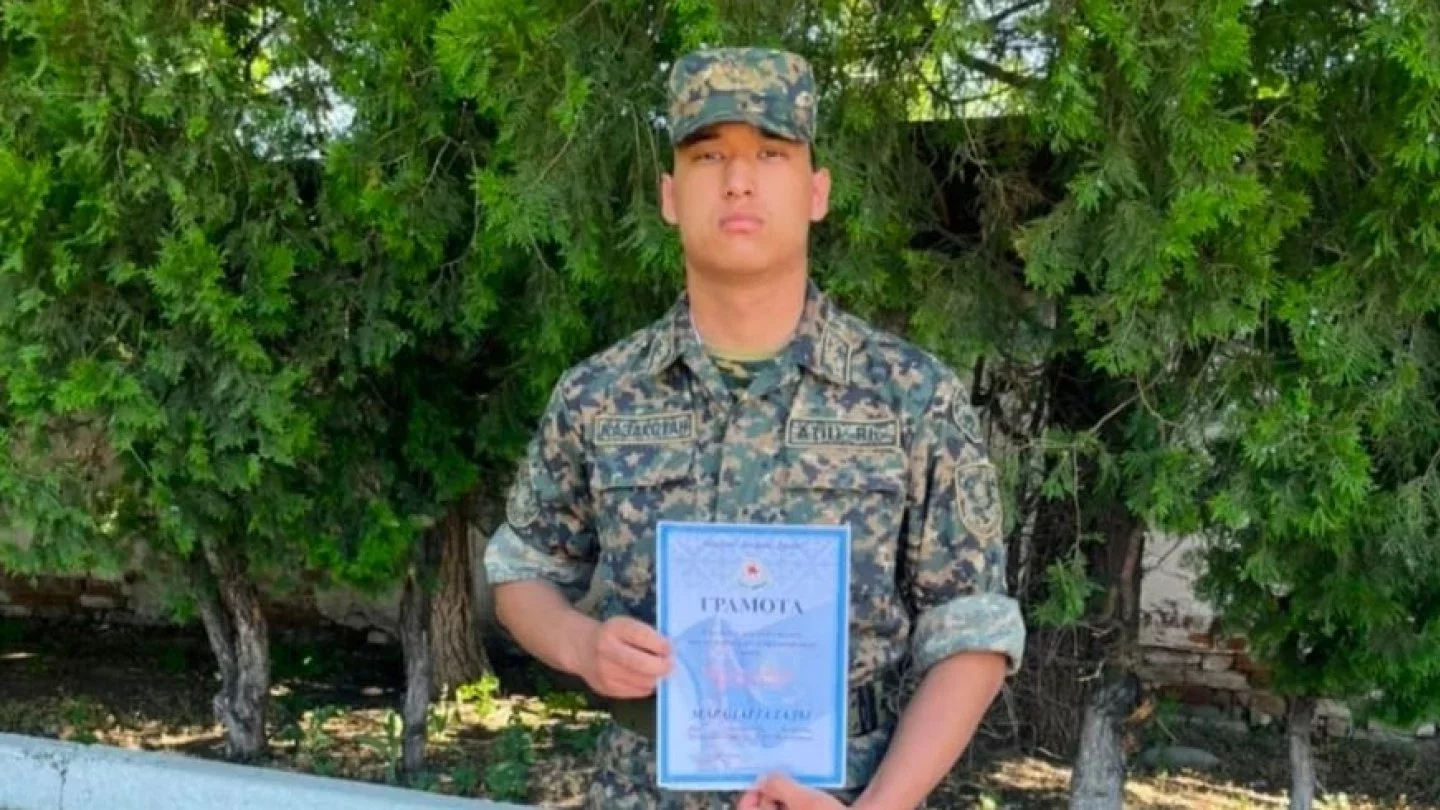 Photo from the family archive. Almas on the day of oath
Photo from the family archive. Almas on the day of oath
Orda.kz has recently written about the story of National Guard soldier Yerbayan Mukhtar. He served for only three months in military unit 5571 in Almaty. He has been in a coma for six months. The parents were informed that their son had passed out in a restroom and suffered a traumatic brain injury as a result. Relatives question this version and demand a full investigation. Two years ago, another soldier, Almas Shakhimov from Kokshetau, died in the same unit. A sandstorm and a tent are the official reason for the incident. The soldier's mother, Indira Tuganbayeva, gave an exclusive interview to our correspondent.
Irdira, tell us about your son; what was Almas like?
- Almas was a very kind and open person; Kazakhs call such people “aqkonil” - sincere, straightforward, honest, pure-hearted. He was born on March 9, 2003. He is the eldest; I also have two daughters. Since childhood, my son dreamed of becoming a military man. There is a photograph of him - a schoolboy in a military uniform at a formation. After seventh grade, He wanted to enroll in the Jas Ulan cadet corps. But it didn’t work out due to poor eyesight. After ninth grade, he entered the Civil Defense College and studied to become a firefighter.
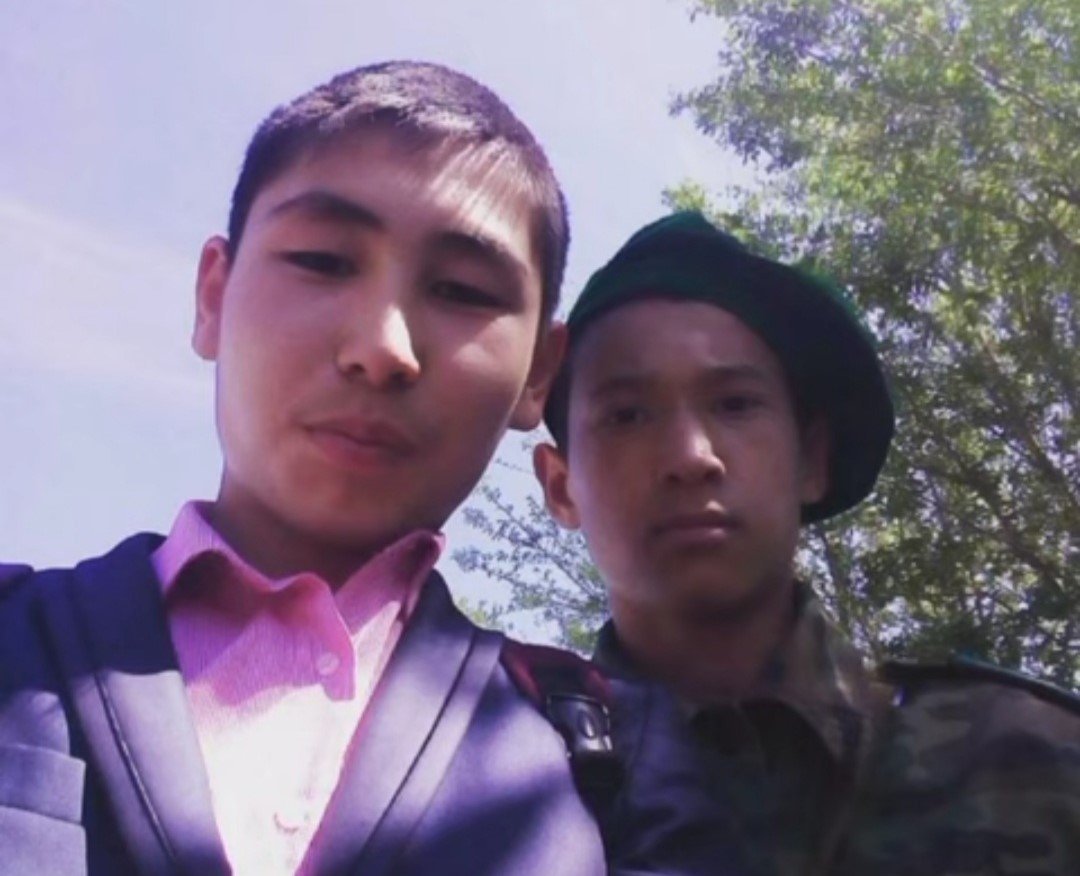
He loved his sisters very much, always cared for and spoiled them. When the eldest went to college, he paid for her studies. He got my youngest ready for school and always bought her everything she needed. He had been working since he was 12 years old. He collected money for a down payment on our apartment. He dreamed of building a house for us. He saved up three million tenge, which we spent on his funeral...
At the age of 16, he already got a permanent job. At first, he helped in the canteen where I worked. Three years later, he opened an individual entrepreneurship: he made sushi and pizza. He was so motivated when he started the business. He said: “Mom, you won’t be in need now, everything will be fine.” Then, he was suddenly called up.
How did they even take him? He went to the military registration and enlistment office with his friend Arlan Aminov, who had received as many as six summonses. And the medical commission also examined Almas and declared him fit for conscription. But he said that he had recently undergone vision correction surgery, and physical activity was inadvisable for him for six months. He always dreamed of serving, but we thought he would join the army in the fall. On May 27, 2022, he was called up. On the 28th, they left for Almaty. On the 29th, he was already in military unit 5571 in Almaty. And on May 30, the first loan was already issued to him.
Loan? Could you explain? Do you mean they took out loans under his name in the army?
— Yes, I was also very surprised when, on June 22, the bank called me and informed me that my son was overdue on his loan payment. After all, before he left, I personally closed all the debts that he had with the bank - he took out money for business. I told the bank employee that this was probably a mistake. After all, not even a month had passed since my son was in the army; what kind of loans could he have had? But, I was informed that the debts had already accumulated during his service. First, they took out a loan for 16,000 tenge - “they got groceries,” as they said later. On June 7, they purchased a cell phone on an installment plan, and on June 11, they bought another phone from the same store.
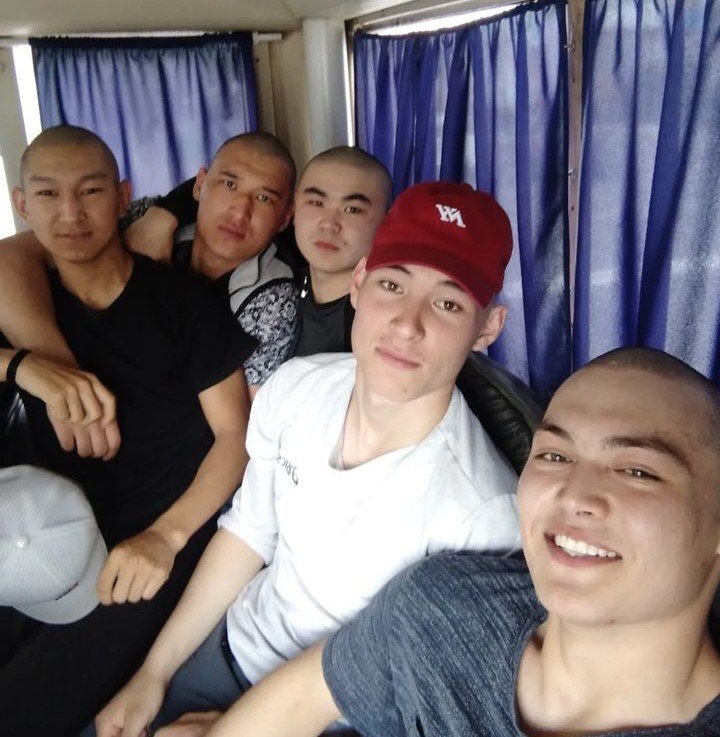
I later called the officer who directly recruited Almas into the army, Dmitry Karpienko. After all, on May 29, he took the cell phone from my son and other recruits. I told them that the bank called and informed me about the loan. This officer started shouting at me: “What do you think, I took out the loan? Just because I have the phone doesn’t mean I took out the loan.” He then said prophetically: “At this rate, your son will not finish his service.” And he didn’t finish it.
How was the loan incident resolved? Was anyone punished? You said that this was the first loan; does that mean there were more?
— After that, on July 8, we went to Almaty for the oath ceremony. I then spoke with a higher commander. He said: “There is no need to complain to the higher authorities because it will be difficult for your son here.” My son also insisted that I not get worked up over this incident. They (the military men) sent me money to pay off the debt. Five months later, one of the officers, Aytugan Yerzhan, stated that the officer - at that time senior lieutenant Yerbolat Shanazar - took out these loans. Shanazar himself was my son’s direct commander. He admitted later that he took out these loans. We have his statements. After this incident, they again took out a loan in my son’s name for 280,000 tenge. This Shanazar, as it turns out, is a gambler. He used my son's card. The parents of other soldiers transferred money to my son. There were transfers of 10–20 thousand tenge, including at night.
When the bank called me, I blocked the account. And he could no longer use Almas’s information. And then another soldier wrote to me: “You blocked his card, now he’s taking it from me.” And, I later learned about many similar stories; mothers of conscripts said that their sons returned from the army with huge loans.
After my son's death, Shanazar was transferred to Taldykorgan and then dismissed. And despite all his confessions, he was not punished. When the investigation was underway, the fact that loans were issued to my son was not taken into account at all.
When was the last time you talked to your son? What did he tell you then? Did he complain about anything?
— On August 7th, we spoke with Almas for the last time. For some reason, he was not in the mood that day. I sent you his most recent photograph. Then, a senior conscript from Taraz gave them a phone so they could talk to their relatives. I remember that day well - it was Sunday, I was doing laundry. I received a message on WhatsApp from an unknown number: “Mom, I’ll make a video call now, just don’t make any noise, turn off the microphone. Please show me my sisters."
The girls were at home, I called for them. He put his finger to his lips to stop us from talking. He was lying on the bed, on the second bunk. He showed gestures as if he were kissing our hands. As if he was saying goodbye to us. He held his heart and showed signs that he loved us. He promised to call in the evening.
And in a telephone conversation, he shared with me: “Mom, the commander told me: Almas, you showed your worth. There is a military academy of the National Security Committee (KNB - Ed.) in Kostanay and Petropavlovsk, we will recommend you for study. Two months before the end of service, let your parents come, collect all the documents, and we'll send you to study. But I turned it down." I asked why. He replied that he wanted to continue earning and saving money for a house right after the army. I, of course, began to dissuade him and said: there is no need to give up your dream. After all, all his life, he had dreamed of becoming a military man. And here is such a chance, especially the KNB Academy. And on Tuesday, Almas died. He served only two months.
How did you find out about Almas' death?
— As I already said, it was Tuesday, the ninth of August. They called us at 23:45, my husband and I were already asleep. First, my phone rang. And on the other end: “Almas Oldi (died), Almas Oldi!” The voice was very young. And they immediately hung up. When I woke up, I didn’t understand what was happening. I thought someone was joking. Then my husband's phone rang. He answered and threw the phone against the wall. Then they called me again. This time, they asked if I was Almas Shakhimov’s mother. I answered yes. And they told me that they were calling from a military unit, there were exercises during which they lost my son during a storm, that he died. I don’t remember anything after that, only glimpses of the faces of my loved ones popping up as they try to bring me to consciousness.
That is, you were informed that he died during the storm at night?
- Yes. Later, when we saw marks of strangulation on the neck, I thought that, at first, they probably wanted to make it look like a suicide. But then they came up with the scenario with the storm.
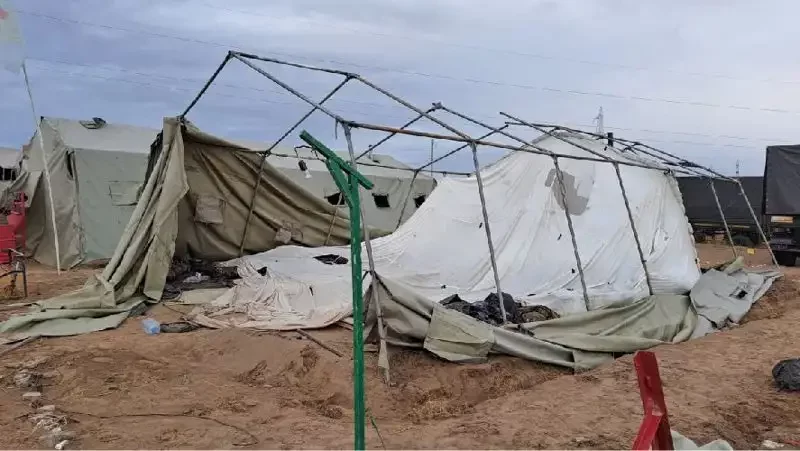
On August 10, the body was brought to Kokshetau. There was a funeral on the 11th. You know, we have a ritual: before the funeral, the body is washed. My brother did this. His blood pressure jumped to 170. He didn’t immediately tell me what he saw - my son’s battered body. In addition to the bruises, there were deep knife cuts all over the body, including the head, clearly visible marks from a belt on the back, and nine burns from cigarettes. They put out cigarettes on him, you see.
After the funeral, someone from the command spoke in the mosque. He said Almas died a heroic death, saving other soldiers. He also stated: “It’s not just your son who suffered. 15 people are in hospital with severe conditions. The nurse is lying in a cast.” Which later, of course, was not confirmed.
At what point did you realize that the version of the accident was implausible?
- I was in a daze for the first days after my son’s death. This will sound strange, but I had a dream. Two days passed after the funeral, I just fell asleep in the morning. And Almas is in the dream, he tells me: “Mom, don’t believe anyone, there was no storm here, they killed me. Go to Almaty, and you will find out the whole truth.” And he shows how he is being beaten. And he said that four officers beat him for hours, humiliated him.
I woke up from shock. I stood up and ran out in what I had on. I only took my passport and bag with me. And I immediately went to Almaty, my mother came with me.
I don’t know how the soldiers learned about our arrival, but they met us in Almaty. They took me to the unit. When I saw Almas’s fellow soldiers, I almost lost consciousness; I felt unwell. After all, my son should have been among them.
The nurse who was supposed to have a cast brought me medicine. She was absolutely healthy, without any visible injuries. I asked her where I could see other soldiers injured from the storm in the hospital. Surprised, she said that there were no injured, no one except my son was hurt.
Did you talk to Almas’s fellow servicemen at that time?
- Of course. I looked into the eyes of all the soldiers; they kept repeating: there was a storm, there was a storm, lowering their eyes to the floor. There was a thin guy there, sitting in the second row. I asked, turning to all the soldiers: they killed him? And with his eyes, he showed it like this: yes. I said: there was no storm? And again with his eyes: yes. They could not speak the truth openly. I couldn’t have pointed to that young man so that the investigation would interrogate him because then it would have been bad for him, too.
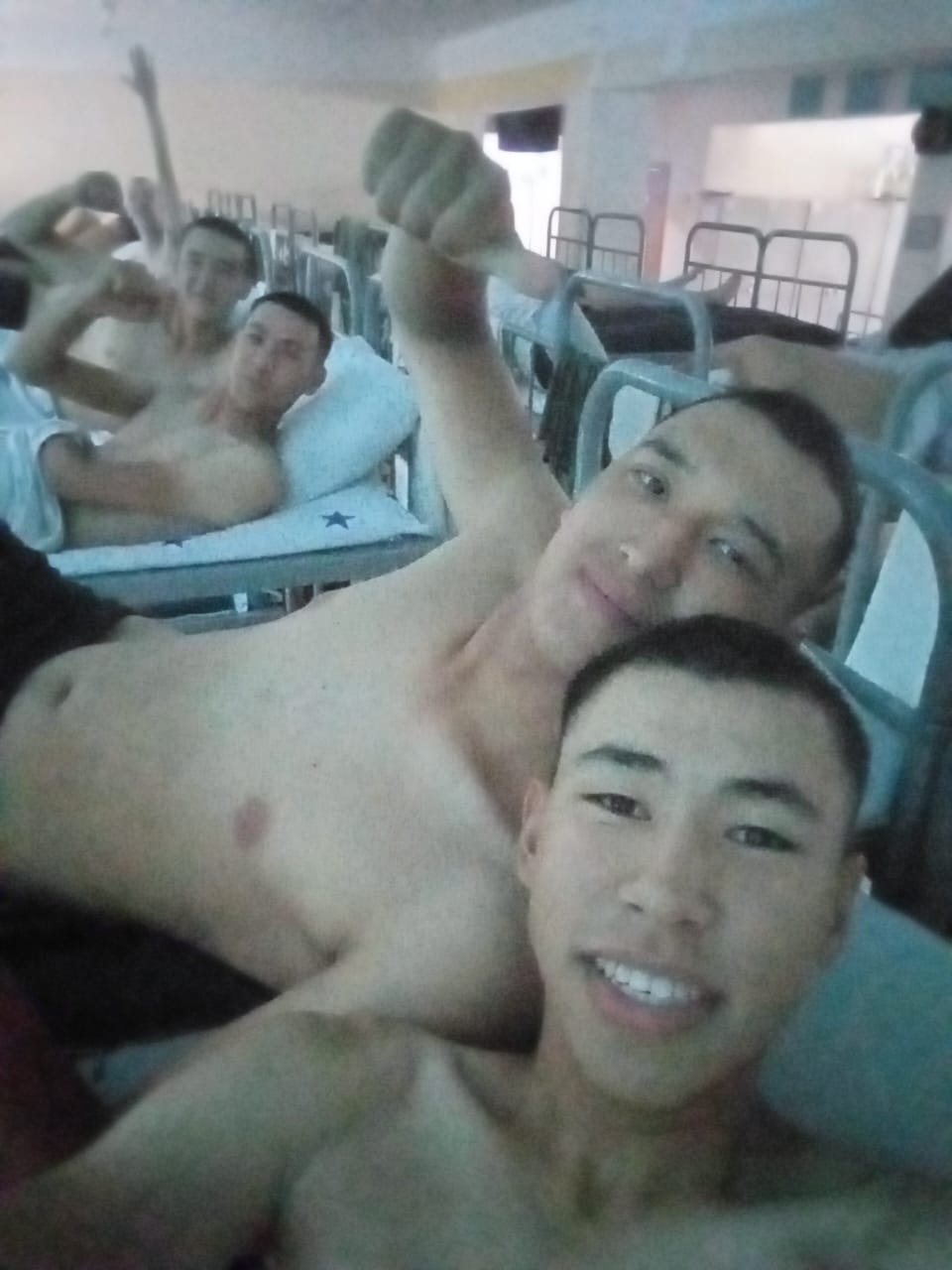
I examined each of those 15 “injured” people. I didn't find a single scratch on any of them. Everyone was absolutely fine. But I was told that they were all in the hospital after the storm. I talked to them. They all got mixed up in their statements. None of the witnesses agreed to undergo polygraph interrogation. But anonymously, they told me that we would tell the truth if the article was reclassified to 99 (homicide).
If you follow the chronology of that evening invented by the soldiers, everything was like this: after the evening formation, which Almas allegedly attended (the results of the examination showed that at six in the evening, he was already dead), they had dinner, and all the recruits were sent to the shooting range. More than 200 people remained in the camp, and all of them, except my son, were contract soldiers whose service was supposed to end in a couple of months. When I asked what the only new conscript among them was doing, I was told that he was supposed to go on night guard duty, and he was left to rest in a tent.
At 20:55, the storm began. Yes, and so strong that all of them - young, physically fit men - were so scared, afraid to raise their heads, lay and trembled; someone was hysterically running around the training ground in their underwear.
My son ran into the tent where five frightened officers were lying and said: let me save you. He took the three by the hand (I’m just repeating their version) and led them to shelter. They claim that the sandstorm was so powerful that they could not see their hands.
Almas, who wore glasses before the army (he was apparently forced to take them off there), who was at the training ground for the first day, saw everything and found his bearings perfectly. Leaving them, he allegedly ran to save others. For fifteen minutes, these three lay in the shelter. Then the storm ended, and Almas was found.
Here, they did not come to a consensus about who found him and where. First, one of them claimed that he had found him, then the other. Initially, they allegedly pulled him out from under the tent. And during the investigative experiment, the dummy was placed in a completely different place.
That is, after 15 minutes, according to their statements, they took my son to the medical center, where he was examined by a male nurse, according to some statements by a female nurse, according to others (in fact, the male nurse was working that day). The medical worker allegedly felt his pulse, found a heartbeat, but noted that his breathing was heavy and he needed to be taken to the hospital.
They drove for 20–30 minutes to the hospital in the city of Qonayev. They called the surgeon in advance and said that they were transporting a seriously injured soldier. He ordered that Almas be immediately taken to intensive care.
Then the facts came: at 21:22, my son was brought to the hospital. The surgeon, when he saw him, began to shout: “Why did they bring a dead body to the hospital!" The body was already stiff and covered with cadaverous spots.
After all, cadaveric spots appear on the body not after five, not after 15, or even after 30 minutes. They appear after at least three hours. A body also does not stiffen immediately, also within three to six hours. And they want to tell us that my son became stiff a few minutes after he died in the 30-degree heat during those days.
They brought him to the hospital so that the time of death could be officially declared. The report records that he was pronounced dead at 9:35 p.m. But once again, the surgeon repeatedly said, his statement was officially recorded, that a stiffened body covered with cadaveric spots was brought to the hospital.
Now, pay mind to the chronology again: nothing adds up. The storm began at almost nine in the evening, and by nine twenty, they were already at the hospital. Explain how their time was reduced. But who cares?
You say that all the soldiers bore false witness. Why are you so sure of this? Whose statements and what facts did not add up?
— The three who were allegedly saved by Almas definitely did: Amanov, Badylov, Bastami. The next morning, after the “storm,” at 8:45, they were already giving interviews and telling all of Kazakhstan how Almas selflessly saved them.
Perhaps they beat him, so they are covering for themselves. Because when there was an investigative experiment at the test site, we never saw one of them during the procedure. He arrived with a lawyer, but we didn’t see him. Tell me, why hire a lawyer if it was a storm?
Amanov said: “I found Almas, he was still alive, breathing heavily. His eye was swollen and bruised.” In five minutes and even in 15, a bruise does not form. First, the site of the impact swells, then becomes burgundy, and only after three to four hours does the blood coagulate, and a bruise appears. Amanov later admitted: “Even though he didn’t save us, the fact is that he was lying on the ground, bloodied.” According to him, blood was coming from his ear, nose, and mouth. Where is his first statement that Almas saved them?
Almas’s direct commander, Dauren Bayasbekov, also bore false witness. He also said that he found the body. He said that he was taken to the medical center, and there was supposedly a nurse there who provided medical care to my son. Then, it turned out that the nurse was nowhere to be found at the training ground that day.
The soldiers who took Almas to the hospital claimed that they brought him to the hospital alive. We had an in-person questioning between the doctors who certified his death and those who brought him in. There, the soldiers admitted: yes, we brought him in dead.
When there was an investigative experiment, the dummy was placed somewhere to the side. I tell them, you said you pulled him out of the tent. They had already changed their statement: he was lying here; we did not see what fell on him. I told them it was clear from all his bruises that he struggled. It is obvious that he was tortured.
They also said that Almas was wearing a jacket. But then they lost it. Video recordings from the neighboring unit were also lost.
Firstly, the video recorded what time Almas was called from his unit “for training.” Because the last time his friends saw him alive was in the morning. Secondly, the storm (that is, its absence) was recorded there. Thirdly, it was seen how they carried the body, wrapping it in a plastic bag.
There is a photograph of the soldiers leaving the hospital after leaving Almas's body there. In the photo, they are all clean and tidy. And this after a terrible storm and after they carried bloodied Almas?
Not a single grain of sand was found in Almas’s hair, by the way. But, according to them, he was lying on the ground during a sandstorm; he should have been in the sand. But there was no sand.
Why did you decide to exhume a year and a half after Almas’s death?
- Initially, we did not plan to do exhumation at all; we were against this procedure. We thought we already had enough direct evidence to prove that Almas was killed. Among Kazakhs, it is forbidden to disturb the body of the deceased. But the soldiers destroyed all the main evidence: my son’s uniform, video recordings at training ground 5574.
But during the investigation, they did another examination, based on post-mortem photographs. They were not satisfied with the wording “laceration wounds” in the first one because tent pegs could not cause stab wounds. In the second conclusion, the wounds became “chop and slash.” And then they no longer cared that this formulation also has nothing to do with pegs, but rather with an axe.
The doctor who made the medical report after death indicated that Almas’s kidneys were injured but did not send this for examination. He also did not take samples from under his fingernails.
A few months after our son’s death, when we began to understand that the case would simply be closed, that no one would help us, on the advice of friends, we turned to the “Koremiz” program on the Eurasia TV channel. They dedicated a whole series of programs to our grief, inviting all the witnesses, the leadership of the military unit, and experts.
One of the programs featured forensic expert Takhir Khalimnazarov. He wondered what kind of structure it was that could break a skull. After the show, he even advised me to do an exhumation to completely remove all “suspicion” from the tent. He looked at post-mortem photographs of Almas and said that, as an expert with 30 years of experience, he saw signs of a violent death. I regret that I didn’t listen to him right away.
The exhumation hit us hard. Before it, we didn't believe our son had died. It seemed that this was all just a bad dream, that he would return from the army. But after this terrible procedure, everything became clearer, and we were left alone with the terrible reality.
Can you tell us about the examination results after the exhumation?
- I can’t divulge all the details, but I’ll say this: it ruled out an accident. This is an outright killing. An examination confirmed that he was dead before seven in the evening. That is before the storm they invented began. Knife wounds were also confirmed. On the arm, on the knee, and on the foot. Only people can inflict such wounds. Not the tent, not its structure, not the pegs. My son sustained 26 injuries; his kidneys were injured, and his skull was damaged.
You say that the storm was invented by the soldiers, that it did not happen that evening. Why are you so sure of this?
- Again, the journalists of the Koremiz program conducted a whole investigation, got weather reports for that evening in the place where the training site was located. Kazgiromet confirmed that there was no powerful sandstorm there. Yes, the weather was irregular: thunderstorm, rain, 14-meters-per-second wind. But this is not a strong, moderate wind. Such a wind wouldn't even make branches from trees fall, much less a tent.
Journalists interviewed residents of the village, which is located near the training grounds. None of them remembered a storm. Not one.
Well, the recording from the neighboring unit 5574, which was lost not by chance, would have confirmed what the weather was like.
In August it will be two years since Almas died. What is happening with the investigation now?
- At the end of November, they called us and informed us that the case had been reopened and our request for exhumation would be granted. And then, on December 8th last year, they exhumed him. The military prosecutor has clearly demonstrated more than once that they are interested in the case being closed. I told the investigators to their faces that I didn’t trust them. There are so many clues in the case and they don't work. And everyone is still holding their positions. But many could be directly accused of concealment.
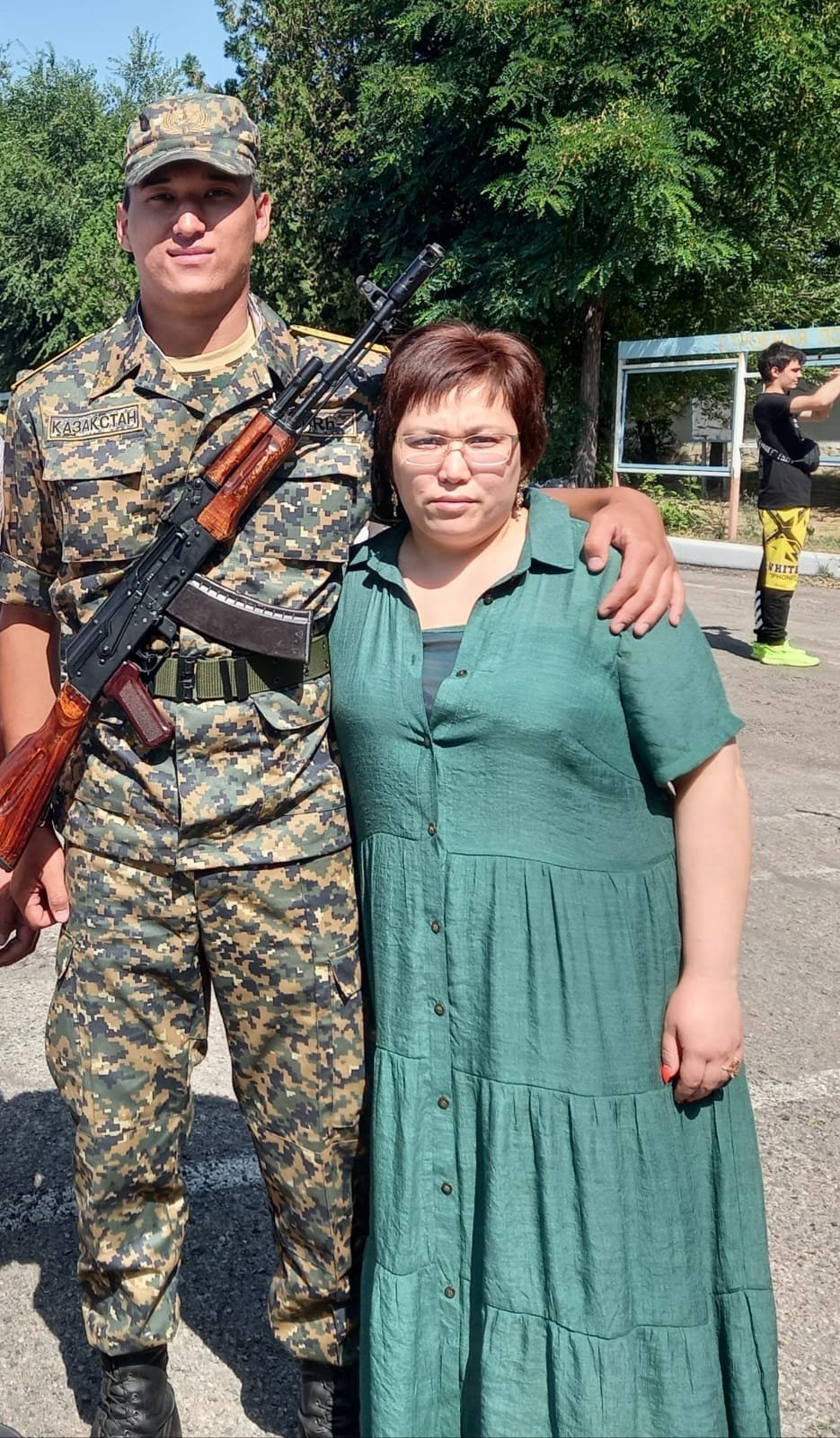
I visit every possible government agency. I was in the presidential administration nine times alone. I won't say a word about the prosecutor’s office; I’ve long lost count. They look at the photographs sympathetically and say: yes, we understand you, we also have children. But there are no results. They changed investigators all the time. The case was closed twice.
At first, the military wanted to “button” our lips nicely. The deputy of the Almaty Military Investigation Department invited me and said: “You have two more daughters; you need strength to make their lives comfortable. It turns out that you are renting an apartment. Let us buy you a home and fully furnish it. We know that this was Almas’s dream. Do you want to live in Astana or Almaty? In which city tell me, we’ll buy you an apartment in that city.” Then they realized that we would see this out. We will not accept their medals, money, apartments, or help enrolling our daughters in university. And then the military changed their tactics. They began to apply pressure both openly and in roundabout ways.
When they brought us the medal “For Courage,” we refused to take it. The Akimat called the concrete plant where my husband works. At that time, I also worked there - I had been renting a dining room. Management called my husband. They began to persuade him to accept this “award.” Naturally, he refused. My husband then shouted: “Fire me for all I care, kick Indira out of the dining room, we won’t take the medal!”
In the end, I was fired. Several weeks passed after the exhumation, the sister of the plant director called me and said that the canteen would be closed. I mean, Almas worked there for three years. We vacated the premises, and two days later, other people were allowed in there. This was a very strange and cruel decision on the part of the management of Kokshebuilding LLP. They knew that I was paying a monthly loan of 600 thousand tenge, which I took out to pay for lawyers, trips to Almaty and Astana to see prosecutors, to the military unit, and so on.
When there was the canteen and the regular income, there was also the opportunity to travel for these bitter issues. I had a team that always supported me. Any day, I could step away and go to Almaty. Now, I work as a chef for hire. The pay is very small, but the big thing is that I can’t ask for time off because there is no one to cover.
This is exactly what the military wanted, so that I would not have any resources to fight them: no money, no time, no physical or moral strength. But I won't break. I will seek justice. I will see this out for the truth. Yes, sometimes I just get upset. I don’t want to see or listen to anyone. I lie in the room alone, not eating or drinking anything. I long to see my son alive. Hold him. But this will no longer happen.
He served only two months and nine days. After two weeks of service, he was appointed company senior. He had prospects. He spent his entire life preparing himself for military service. And he was killed. And these were not privates - these were officers. In one of the comments on social networks, I read: “I also served there. Officers, when they get drunk, start pestering recruits to 'entertain' them.” There, people wrote that in this unit, recruits were beaten on the head with belts and stools.
You keep in touch with the parents of Yerbayan Mukhtar, who was also injured in the same unit in December last year. Have you joined forces to achieve a fair investigation?
— Of course, I would like to join forces. But I explained my current situation. I would like to go to Almaty while Gulsum, Yerbayan’s mother, is there to act together. But I don’t have the money for travel. When she contacted me, I immediately told her: Yerbayan is alive, fight for him. Don’t sit, don’t be idle, go to Almaty. Save him now. I know what the military and the entire system are capable of; I’ve been fighting them for almost two years now.
Orda.kz has sent inquiries to the military prosecutor's office and the Ministry of Internal Affairs overseeing the National Guard. We have asked what is happening now with the investigations into the incidents involving Almas Shakhimov and Yerbayan Mukhtar, whether these cases would be reclassified as criminal, and whether there are suspects. We have not yet received answers. By law, they must be provided within two weeks.
Original Author: Aliya Askarova
DISCLAIMER: This is a translated piece. The text has been modified, the content is the same. Please refer to the original piece in Russian for accuracy. The original article was published on 10/06/24.
Latest news
- From Which Countries Do Most Ethnic Kazakhs Return?
- Asset Recovery: Schools in Turkestan and Aqmola Region villages to Be Built with Oligarchs' Money
- French Market Demonstrates Interest in Kazakhstani Farmers' Products
- Russia's Aircraft Shortage: Kazakhstan's Ministry of Transport Comments
- Qyzylorda Schoolgirl: Five Minors among Suspects
- An Essential EU Partner: Toqayev Invited to Prague
- Saran Residents to Have Heating Bills Recalculated
- Embezzlement Revealed in Aqtobe Region Nurseries
- Almaty: Criminal Scheme Involving Special Public Service Center Employees Exposed
- KTZ Discovers Ghost Employees in Branch
- How Ethnic Kazakhs Live in Afghanistan
- Almaty: Exhibition of Afghan Goods Held
- Kazakhstan: Archaeologists Found Artifacts Dating back 30,000 Years
- Aqylbek Muratbai Wrote Letter from Almaty Pre-trial Detention Center
- Week in Review: Announcements, Trade, and More.
- Export Bans: Kazakhstan Limits Timber, Russia Blocks Flowers
- Kazakhstan's Grain to Be Sent to China
- National Fund and ENPF Funds to Be Directed to Energy Development
- Yekibastuz: Company Previously Owned by Klebanov and Kan Intends to Raise Heat Tariffs by 228%
- Kazakhstan Set to Pull Price Limits for Fuel and Lubricants

